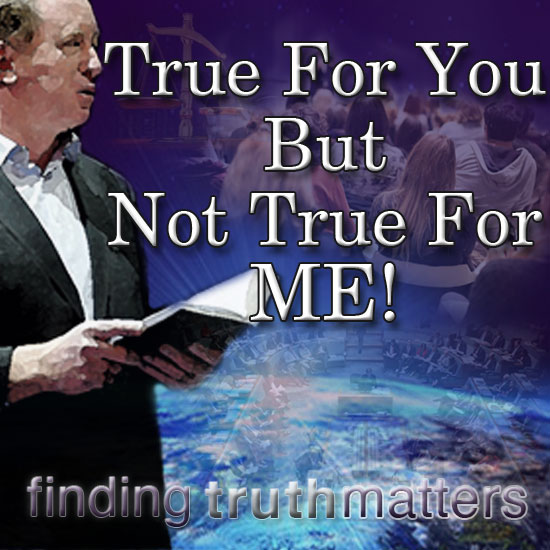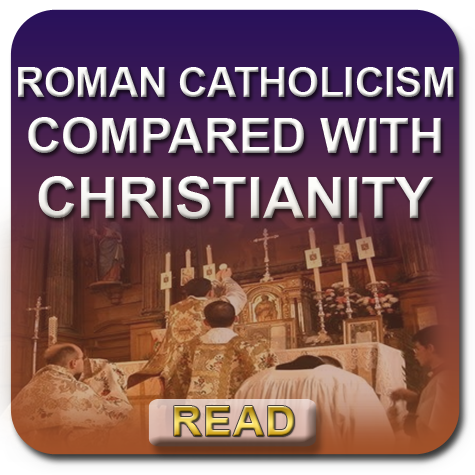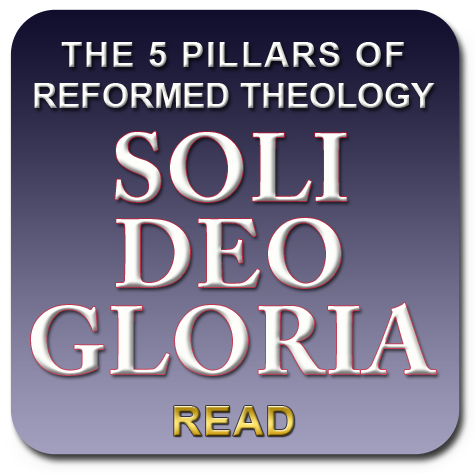
by Andrew Corbett | Mar 29, 2018 | Philosophy
Have you ever heard someone say, “That may be true for you but it’s not true for me!” It’s the kind of sentiment which might be appropriately limited to our experiences and our emotional responses to them, but it can not be true about those issues which effect us all, known as universals. These include what we consider to be morally right or wrong, whether a fact is true or false, or whether we should regard something as either good or bad. For example, one of the universal laws that is not subject to personal opinion is gravity. Someone may disagree with it, but their disagreement doesn’t change its reality.
The kind of judgment needed to distinguish right from wrong, true from false, or good from bad, must allow for those things which are universal and thus common to all. This kind of truth, what Francis Schaeffer called ‘true truth’ is also not subject to context, circumstances, popularity, or fashion (Beckworth & Koukl 1998, 20). Neither is it restricted to a time or place. Thus, what can be known as true has generally been acknowledged as such down through the ages by various peoples located in different parts of the world. Philosophers refer to this kind of truth as…

by Andrew Corbett | Mar 19, 2018 | Pastoral
The definition of a crisis is a calamity or event which disrupts a person’s sense of well- being and lifestyle. It is generally short term and requires immediate action in order to restore balance and control in the person’s life. The results of crisis are: anxiety, bewilderment, confusion, desperation, anger, helplessness and even apathy. There is an increased sense of dependency upon others, a sense of urgency, and decreased efficiency in decision making and performance. The account of Judah being sieged by the Assyrians in Second Chronicles 32, involves all the aspects of a crisis. The major distinctive is that it involves a nation of people rather than just one person. The “helper” in this instance was their leader – King Hezekiah.

by Andrew Corbett | Mar 18, 2018 | Theology
Any discussion about religious wars, clergy violations, or child abuse, and it won’t be long before the The Roman Catholic Church unfortunately features. But I want to have a different discussion. And unlike most of the ‘discussions’ of this nature, I’m not on a mission to attack, ridicule, or mock anyone. Rather, I want to look at what the Roman Catholic Church officially teaches and asserts and compare it with the Bible’s teaching.
I’ve been a denominational minister for over two decades, so I know that it is possible to be a part of an organisation with which you disagree on some points. I understand that this is certainly the case with the Roman Catholic Church as there are many priests who do agree with all that their Church asserts. For the purposes of this discussion, I have chosen to take the official Catholic positions on the matters I am comparing with the Biblical data. It is my hope that my Roman Catholic audience will acknowledge that I have represented their views fairly – but it is also my hope that I can appropriately demonstrate how these core views compare with the Biblical prescriptions.

by Andrew Corbett | Mar 17, 2018 | Theology
The final statement in The Five Pillars of Biblical Christianity is Soli Deo Gloria – for the glory of God alone! The reason we are saved is so that we can glorify God. In one sense it is true that reason Christ died for us was to save us from our sins and the just wrath of God for our sin. But the main reason Christ died to redeem us was for the glory of God.
How can you believe, when you receive glory from one another and do not seek the glory that comes from the only God?
John 5:44
The glory that comes from God is when we give God glory. One of Christ’s last prayers was that His disciples would see His glory (John 17:24). Therefore God’s glory, His radiant magnificence, is visible and apprehendable. God’s glory is described several times in Scripture. In this sense, God’s glory is a visible reality (a noun). God’s glory is variously described as being like a cloud (Exodus 16:10), a devouring and consuming fire (Exodus 24:17), fire and smoke-like cloud (2Chronicles 7:1), and a brightly glowing cloud (Ezekiel 10:4).

by Andrew Corbett | Feb 27, 2018 | Theology
Sitting across from me in my office was an older middle-aged man who had just read my draft commentary on the Book of Revelation. He had come from Queensland to visit friends in Tasmania and while in the neighbourhood, dropped in to see me to have chat and get a later edition of my book. He asked a lot of theoretical questions and we discussed the implications of what we discussed. Not until he returned to Queensland did I get an email regarding the chapter on the Resurrection. It was at this point that he confided in me that he was in the advanced stages of cancer and that his query was far more than theoretical.
The ancients believed that death was merely a change of location for the soul of a person. The place of the dead was called “Sheol”. When Jacob thought his son Joseph was dead: “All his sons and all his daughters rose up to comfort him, but he refused to be comforted and said, “No, I shall go down to Sheol to my son, mourning.” Thus his father wept for him.” (Gen. 37:35 ). When the judgment of God came upon Korah and his rebellion.





